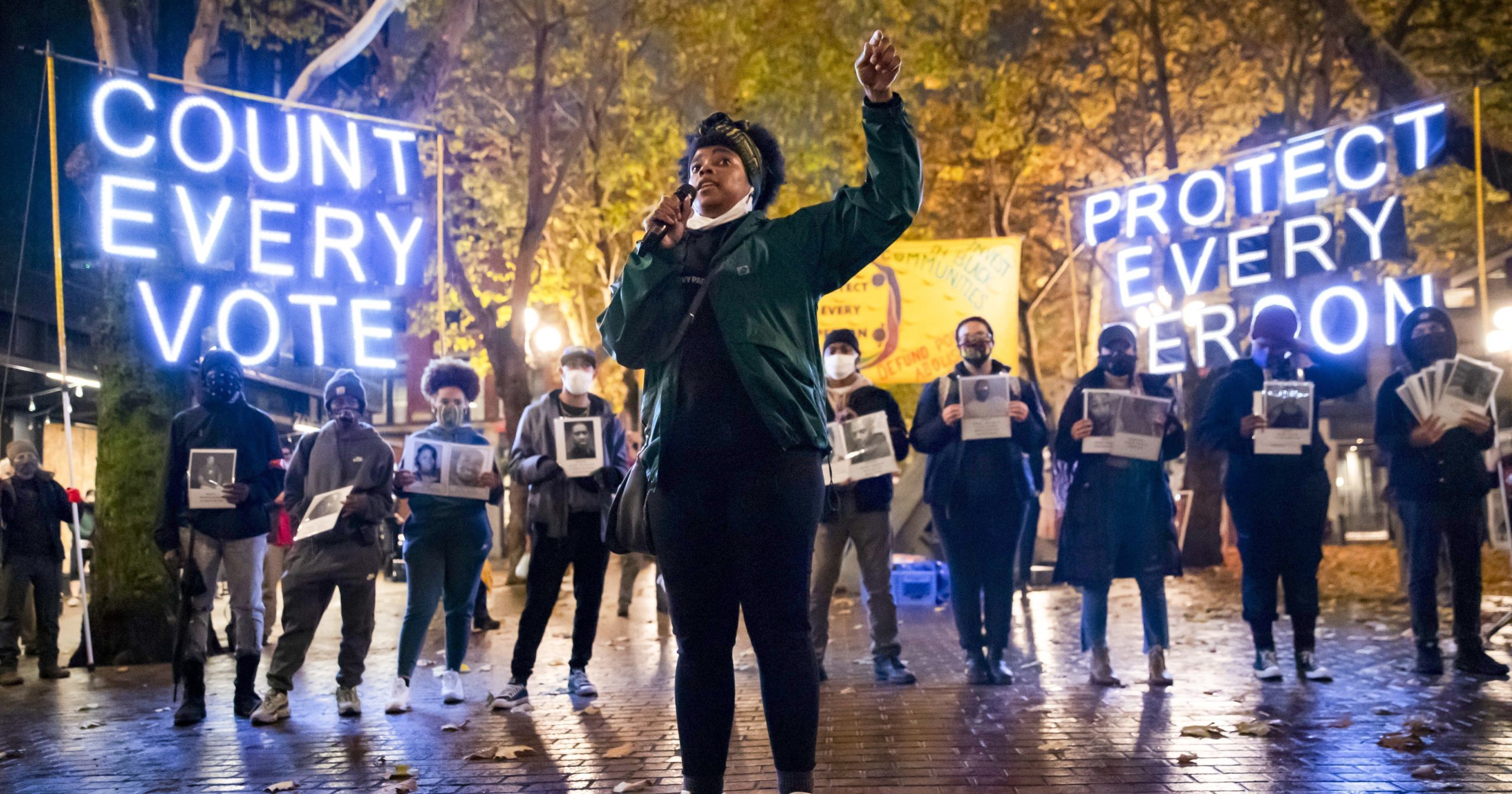
Growing Movement To Abolish Electoral College Sets Sights on More States
As the Electoral College meets Monday to elect the next president, a growing movement of its detractors hopes it marks the beginning of the end of the 230-year-old system.
Twice this century, a presidential candidate has won the White House while losing the popular vote — George W. Bush in 2000 and Donald Trump in 2016.
“It’s an old, ugly mess that frankly should have been obviated some time ago,” according to Virginia House of Delegates member Mark Levine, a Democrat who introduced a bill that would have Virginia sign on to the National Popular Vote movement.
It would compel member states to award their electoral votes to the winner of the nationwide popular vote.
Levine’s measure passed the Virginia House earlier this year. Passage by the Senate would bring the movement 13 electoral votes closer to its goal.
So far, 15 states and the District of Columbia have signed on.
For presidential candidates, 270 Electoral College votes are needed to secure a win. The push for a national popular vote also is aiming for that number.
It already has secured 196 and aims to gain more next year. Advocates hope, perhaps unrealistically, that it will be in place by the next presidential election in 2024.
Under the current system, each state’s electoral votes go to the candidate who won the popular vote in that state, with the runner-up getting nothing. Nebraska and Maine are the only exceptions.
National Popular Vote, the group pushing the compact, is focusing in 2021 on Virginia and eight other states: Arizona, Arkansas, Maine, Michigan, Minnesota, Nevada, North Carolina and Oklahoma.
The initiative has made progress in those states by passing at least one legislative chamber, but didn’t cross the finish line, spokesman Patrick Rosenstiel said.
They have a combined total of 88 electoral votes, enough to surpass 270.
“We’ll focus on any states that offer a credible chance of enactment between now and the 2024 presidential election,” Rosenstiel said.
Success in those states is far from assured. Many Republicans support the Electoral College, and the GOP will control both houses of the legislature in Arizona, Arkansas, Michigan, North Carolina and Oklahoma, and one chamber in Minnesota.
Yet even in Nevada, where Democrats control the Legislature and governor’s office, a national popular vote is a hard sell.
Nevada Gov. Steve Sisolak last year vetoed a measure supported by Democratic lawmakers that would have committed Nevada to the compact.
The Democratic governor said a popular vote “could diminish the role of smaller states like Nevada in national electoral contests.”
Nevada has been a battleground state for several presidential election cycles, including this year. That brought campaign stops by Trump and Democrat Joe Biden, attention Nevada’s 3 million residents might not have received if the current system had not existed.
Under the Electoral College, each state’s number of electoral votes equals the size of its congressional delegation. Wyoming, America’s least populous state, has two senators and one representative, so it gets three. California, the most populous state, has 55.
To win the White House, a presidential candidate must collect at least half of the total 538 electoral votes plus one — 270.
The U.S. is the only modern democracy with such a system, according to the Pew Research Center. Most others elect their leader by national popular vote or the parliamentary system in which the winning party chooses the head of government.
Opponents say the electoral system encourages candidates to ignore states that are either firmly Democratic or Republican and gives disproportionate power to voters in just a few states.
Supporters say it adheres to federalism by preserving the role of states in presidential elections.
If the movement to change the system reaches the 270 threshold, those supporters might sue on constitutional grounds. The Constitution says Congress must consent to interstate compacts. However, the U.S. Supreme Court has ruled that some compacts don’t require congressional consent.
“We believe Supreme Court precedents indicate that this additional step is not needed,” National Popular Vote Chairman John Koza said in an interview. “Nonetheless, National Popular Vote is working to obtain support for the compact in Congress.”
The 15 state legislatures that have passed a national popular vote bill since 2007 are all controlled by Democrats: California, Colorado, Connecticut, Delaware, Hawaii, Illinois, Maryland, Massachusetts, New Jersey, New Mexico, New York, Oregon, Rhode Island, Vermont and Washington. The District of Columbia council, controlled by Democrats, also approved it.
But over a decade ago, when Democratic President Barack Obama was in office, some criticism of the Electoral College came from the other side of the aisle, Koza said.
A national popular vote measure, for example, passed the Republican-controlled New York Senate back then, but didn’t get through the Democrat-controlled Assembly.
“This is an issue that people have a very short-term partisan way of looking at,” Koza said.
Legislatures in the Midwest and South have shied away from joining the compact. South Dakota’s Legislature even passed a resolution this year condemning it.
“The current Electoral College system creates a needed balance between rural and urban interests and ensures that the winning candidate has support from multiple regions of the country,” the resolution says.
State Rep. Tina Mulally, who introduced the resolution, said in an email that the Electoral College protects the political influence of smaller states like South Dakota.
A national popular vote, she said, would be “like two wolves and a sheep deciding what’s for dinner.”
The Western Journal has reviewed this Associated Press story and may have altered it prior to publication to ensure that it meets our editorial standards.
Truth and Accuracy
We are committed to truth and accuracy in all of our journalism. Read our editorial standards.
Advertise with The Western Journal and reach millions of highly engaged readers, while supporting our work. Advertise Today.












